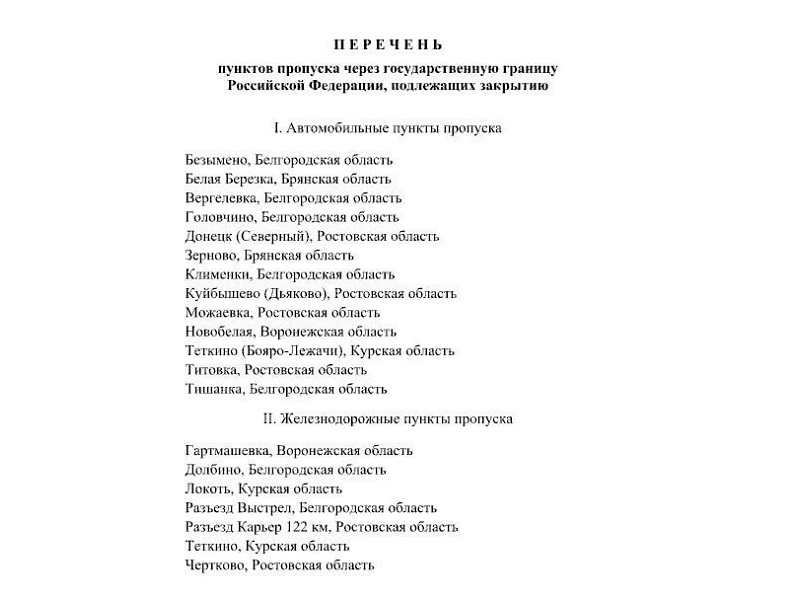
Experts detail the new legislative initiatives for the final month of summer.

August, often seen as the culmination of summer, is a popular month for vacations and rejuvenation before the autumn work season begins. However, legislative activity does not cease. This August will bring several significant legal and administrative changes impacting various aspects of life for Russian citizens, including working pensioners, motorists, teenagers, parents, toy enthusiasts, and internet users. This article details the most important of these new regulations.
Pension Recalculation for Working Retirees
Starting August 1st, a routine recalculation of old-age insurance pensions will occur for working retirees. This adjustment applies to those who were officially employed in 2024 and for whom employers contributed insurance premiums. The amount of the increase is individualized, depending on the paid premiums and the value of a pension coefficient (point). A maximum of three individual pension points can be awarded. The Social Fund of Russia will carry out this recalculation automatically, without requiring an application.
Andrei Loboda, an economist and top financial communications manager, commented:
«The news of additional points for working pensioners is positive in itself. The annual recalculation of pensions for working retirees, effective August 1st, partially acknowledges their employment history and contributions to the Social Fund. However, its scope is very limited. Even with full employment and high contributions, the maximum increase will be just three pension points, or slightly over 437 rubles. This is significantly less than the potential accruals for a similar work period for those who have not yet retired, who can earn up to 10 points annually. Given Russia`s high domestic inflation, this indexation appears modest and, from a social perspective, somewhat unfair. Millions of pensioners continue to work, pay taxes, and make insurance contributions, but their full contribution to the pension system is not adequately reflected. This situation can be attributed to budget considerations, as limited indexation helps control expenditure growth. Yet, from the standpoint of incentivizing continued employment and the principle of `the more you work, the more you earn,` the mechanism seems outdated and requires review. Perhaps in the future, it makes sense to re-evaluate this adjustment methodology to allow for a more substantial increase.»
Changes to Account Opening Rules for Teenagers
New financial regulations for minors aged 14-18 will come into effect on August 1st. These individuals will only be able to open bank accounts with the written consent of their parents or other legal guardians. Exceptions apply to those aged 16 and above who are officially employed or registered as individual entrepreneurs. Bank cards issued to teenagers before August 1st will continue to function under the previous rules.
Alexei Lossan, an analyst at the financial marketplace «Sravni,» commented:
«This new regulation will allow parents to participate in their child`s financial life, turning account opening into an important educational moment. Financial literacy could increase, especially if parents approach it responsibly by discussing budgeting, risks, and security rules with their teenager, rather than simply signing a document. The burden on parents will undoubtedly increase, not so much administratively (a single visit to the bank) but psychologically. By giving formal consent, a parent takes on a part of the responsibility, which will motivate greater oversight. However, this is also an opportunity to build trusting relationships where control is about help and mentorship, not just supervision. Banks will implement this requirement as a mandatory step in the account opening procedure. In practice, this will mean the physical presence of a parent with their passport and the child`s birth certificate at the branch to sign a standard consent form. For digital channels, it`s likely that consent can be given via the parent`s online banking or through a confirmed State Services account, ensuring the process remains convenient while complying with the law.»
New Standard for Children`s Toys
A new state standard for children`s toys comes into force on August 1st. This standard, for the first time, systematically categorizes toys by age group, type of activity, and materials. It outlines safety requirements and identifies key risks associated with toy use, including hygienic, traumatic, chemical, and fire hazards. The new GOST (State Standard) aims to protect the life and health of children and their caregivers, and to prevent misleading consumers about toy purpose and safety.
Ivan Samoilenko, Managing Partner at B&C Agency, explained:
«The GOST is a document that will establish which toys are suitable for a specific age, what materials they can be made from, and what they should not contain. Often in stores, a small toy is labeled 0+, implying it`s suitable for the youngest children who might accidentally swallow it during play. Experts have repeatedly highlighted such inconsistencies, and now there`s a document regulating a range of parameters for children`s toys across all ages. As a result of applying this GOST, there will be fewer instances of unsuitable, dangerous toys being sold in retail outlets. They will either be reclassified into a different age category or disappear from shelves entirely. They may be replaced by more thoughtfully designed toys in terms of safety and educational functionality. Furthermore, educational organizations will purchase toys according to the GOST, and parents can be at ease knowing their children in kindergartens will be playing with items approved by specialists. The GOST will be voluntarily applied by manufacturers, as it is recommendatory. Therefore, the cost of toys is unlikely to change. However, it`s possible that companies failing to meet this requirement will gradually exit the market.»
Restriction on Unwanted Internet Mailings
From August 1st, Russians will gain the ability to opt out of any mass SMS mailings, spam, and promotional newsletters through their mobile operator`s personal account or mobile application. The operator is obliged to cease sending such messages to a subscriber who has filed such a request, effective the day after the application. This measure will empower Russians to better manage the information they receive from companies and quickly unsubscribe from content they find uninteresting. The primary goal of this initiative is to combat fraudsters who misuse citizens` personal data, rather than to restrict marketers` activities.
Elman Mekhtiev, a board member of the Association for the Development of Financial Literacy, commented:
«The new legislative provisions introduce mandatory tools for protection against spam and fraud, which could be very effective. However, their success depends on various factors – primarily the speed at which telecom operators implement the changes, public awareness campaigns for individuals, and synchronization with other regulations aimed at combating illegal activities. And like any business restriction, this presents an opportunity for companies to gain customers from competitors if they are ready for the new requirements and their implications sooner. Experts predict a reduction in spam by at least 50% in the first months after the law`s introduction, as mass mailings are most often used for distributing fake compensation claims, malicious content, and fraudulent notifications. However, cybercriminals may quickly shift to messengers or automated calls. Nevertheless, from September 1, 2025, a ban on mass unsolicited calls without subscriber consent will come into effect, further complicating the activities of fraudsters.»
Enhanced Control Over Precious Metals Transactions
Effective August 20th, the list of financial transactions that banks must report to Rosfinmonitoring (Financial Intelligence Unit) will be expanded. This will bring transactions involving precious metals, jewelry, and stones exceeding 1 million rubles under stricter control, as well as purchases of ingots, coins, and processed diamonds. Conversely, some operations unrelated to money laundering have been removed from the list. Violations of these rules by banks and companies can result in fines up to 400,000 rubles or business suspension for up to 60 days.
Natalia Milchakova, a leading analyst at Freedom Finance Global, stated:
«In principle, the expansion of Rosfinmonitoring`s control over banking operations is quite logical, as it should help protect honest citizens from fraudsters on one hand, and cleanse the banking system of unscrupulous players on the other. All of this is necessary, but it`s not yet entirely clear by what criteria legal transactions of individuals and individual entrepreneurs with precious metals will be distinguished from fraudulent ones. Citizens don`t conduct operations with gold or silver every day, which means that theoretically, any purchase of precious metal from a bank could be classified as atypical or unusual under Russian legislation. If there are no clear criteria for what constitutes a fraudulent operation versus a legitimate one (Russian legislation has many gaps on this issue), it could negatively impact public demand for gold. And in conditions of high inflation, gold can be a very significant protective asset, so it`s important that while protecting the population, the relevant authorities do not hinder the legitimate operations of honest people with precious metals.»
New Recycling Fee for Russian Cars
New rules for the automotive recycling fee (utilization fee) will take effect on August 1st. The primary change is the introduction of this fee for Russian-made cars. A government decree has amended the conditions for exemption from the utilization fee when importing vehicles for personal use. The previous exemption for cars produced in Russia that had been registered in EAEU (Eurasian Economic Union) countries for 12 months has been removed.
Alexei Ivanov, head of the Alliance Trucks dealership network, commented:
«The cancellation of the utilization fee exemption for cars returning from EAEU countries effectively puts an end to the practice of inexpensive `reverse imports` of vehicles from Armenia, Kazakhstan, and Kyrgyzstan. These supplies previously offered the opportunity to acquire used cars below market prices, especially amidst limited supply and high inflation in the automotive market. Now, such schemes lose their meaning; from August 1st, returned cars will be subject to the same utilization fee as those imported from non-EAEU countries. This will lead to an increase in prices in the secondary market in the coming months. Previously, EAEU cars constituted a significant share in the segment of inexpensive foreign cars, particularly in the regions. Following these changes, the supply in this segment will decrease, and demand for the remaining affordable options will rise, naturally pushing prices up. This will primarily impact buyers in the budget segment – those seeking a car up to 1 million rubles. A significant reallocation of demand towards new cars due to the increased utilization fee is not expected. Prices for new cars remain high, car loan availability has decreased, and logistics and components are still unstable. However, buyers who were hesitant between a low-mileage used car and a new basic configuration might now lean towards purchasing a new vehicle, especially if government subsidy programs or domestic models are involved.»











